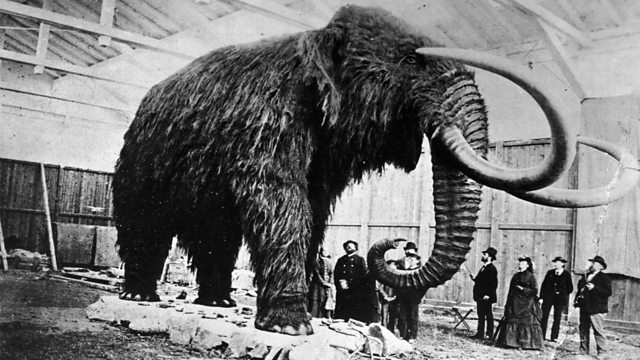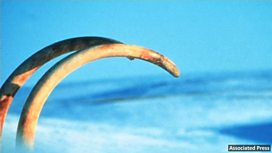Main content
Resurrection
What are the rights and wrongs of resurrecting the past? Can what is dead and gone ever be returned to its former glory? With Beth Shapiro, Jyotsna Kalavar and Bill Smith.
Why we yearn to bring the past back to life, whether it is extinct animals, ancient languages or salvaging the wreckage of a legendary speedboat. Bridget Kendall asks the ancient DNA biologist Beth Shapiro, the Sanskrit expert Jyotsna Kalavar and the engineer Bill Smith to share their thoughts.(Photo: A woolly mammoth. Credit: Getty Images).
Last on
Sat 15 Aug 2015
11:00
成人快手 Radio 4
![]()
The oldest DNA recovered so far
Beth Shapiro on the challenges of working with ancient DNA
Beth Shapiro

Beth Shapiro specialises
in the ancient DNA of two extinct species, the woolly mammoth and the passenger
pigeon, and is associate professor of ecology and evolutionary biology at the
University of California in Santa Cruz. She shares with us her latest research
on de-extinction, which is the science of creating an organism which is a
member of or resembles an extinct species. While it鈥檚 unlikely any extinct
animal will be successfully brought back to life soon, Beth argues that
resurrecting extinct traits can be a powerful new tool in biodiversity
conservation.聽 Beth鈥檚 latest book is How
to Clone a Mammoth: The science of De-Extinction.
Bill Smith

Bill Smith is an
engineer and salvage diver who is leading a project to restore one of the
world's most legendary speedboats. It was more than 45 years ago that the
racing driver Donald Campbell was killed in his boat Bluebird, in a spectacular
crash while trying to increase the world water speed record to more than 300
miles an hour. Bill Smith was the diver who recovered the wreckage in 2001, and
has since spent more than a decade restoring the boat so it can run at speed
again. He explains to us the complications of rebuilding such a craft which had
the engine of a jet powered hydroplane, and was considered a spectacular feat
of engineering.
Jyotsna Kalavar

Professor Jyotsna
Kalavar is actively involved in the revival of Sanskrit as a spoken language in
India and the United States, and has been a key contributor to Sanskrit
education around the world. She is also a Samskita Bharati senior volunteer
teacher. While Sanskrit has remained as a written and liturgical language
throughout the centuries, the numbers of people speaking it declined
dramatically more than a hundred years ago. Some of this has been attributed to
the rise of English after colonialism, and also a change in the traditional
educational system. Jyotsna speaks about the challenges of modernising a
language that was created so long ago, and why it is worth preserving the
ancient knowledge locked in its words. Jyotsna Kalavar is also Professor of
Human Development and Family Studies at the New Kensington campus of Penn State
University in the US.聽
Broadcast
- Sat 15 Aug 2015 11:00成人快手 Radio 4


